When President Bola Ahmed Tinubu started nominating his cabinet members, he was commended by some observers for what they considered “politically-correct appointments”. The geographical spread of his service chiefs was also received positively.
His swift policy statements, though criticised, were praised as timely, in comparison to the “uncomfortable silence” of his predecessor, former President Muhammadu Buhari.
However, early enough, some political glitches during the screening of some of his ministerial nominees at the National Assembly began to make many Nigerians adjust their sitting positions.
One of the issues that particularly raised some controversy was the high-wire politics that led to a ministerial nominee, former Governor Nasir El-Rufai, being dropped at the last minute over a security report after a screening that had been widely judged as successful.
Also, another ministerial nominee from Kano State, Maryam Shetty, was refused screening by the senators after she was already at the National Assembly lobby, where she learnt that her nomination had been revoked.
Now many months later with most of the essential appointments having been made, there have also been some controversies trailing some of the government’s top officials.
BETTA EDU
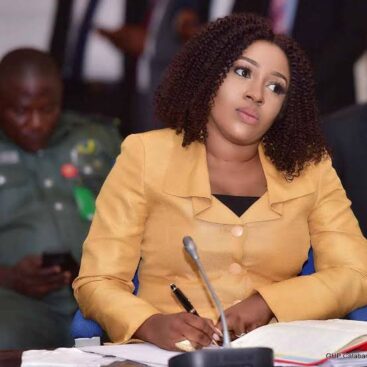
The minister of humanitarian affairs and poverty alleviation was suspended by President Tinubu on Monday over an alleged diversion of more than 585 million naira from her ministry into a personal bank account.
Last week, a leaked document had allegedly showed Edu instructing a senior treasury official to transfer the money to the personal account of Bridget Oniyelu, the accountant for the government’s Grants for Vulnerable Groups initiative.
Tinubu called for an investigation into the transfer on Sunday, asking the Economic and Financial Crimes Commission (EFCC) for a “thorough investigation into all aspects of the financial transactions” involving the ministry.
He also asked Edu to comply with the investigation and also called for the reform of government institutions that run National Social Investments Programmes (NSIP), stressing a need to “win back lost public confidence”.
However, Edu has denied any wrongdoing and said she was acting in the “best interest of the vulnerable groups.”
Edu, who is 37 years old, is one of the youngest ministers in Tinubu’s cabinet, as well as the first appointee to be suspended since Tinubu took office in May last year.
HANATU MUSAWA
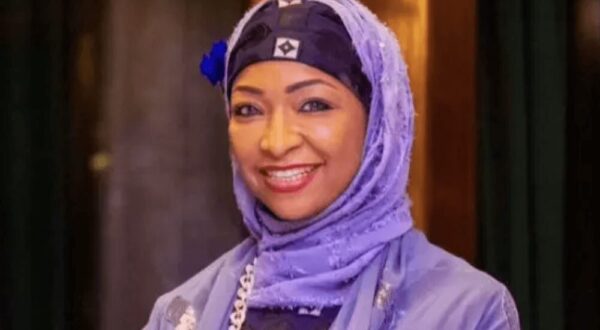
The Minister of Art, Culture and Creative Economy, Hannatu Musawa, some months ago, disowned a statement purportedly released by her in relation to a controversy surrounding her National Youth Service Corps (NYSC) status.
The controversy regarding the NYSC status had begun three years ago when she could not provide evidence of national service to senators during the screening for an appointment she was nominated for by former President Muhammadu Buhari.
But the controversy reached a new height in August 2023 shortly after she had assumed office under President Tinubu, following the confirmation by the management of the NYSC that Musawa was still undergoing her national youth service. Consequently, critics began to call for her to be relieved of the ministerial position insisting she could not hold on to both.
It led to a heated conversation with a section of the media publishing a statement purportedly issued by the minister, saying she had not broken any law by holding a ministerial position and undergoing the national service simultaneously.
However, in a statement by the Deputy Director, Press at the Federal Ministry of Information and National Orientation, Suleiman Haruna, Musawa said the published statement did not emanate from her and, therefore, dissociated herself from the contents of the statement.
It was also later revealed that an NYSC discharge certificate issued in Musawa’s name in 2003 existed and was in the custody of the Corps, but the authorities withheld the document after accusing her of absconding at a point during her service year.
On her part, Musawa said the NYSC was not diligent and careful enough in its search for her record and that she was not accorded a fair hearing to prove that she had not absconded.
OLUBUNMI TUNJI-OJO
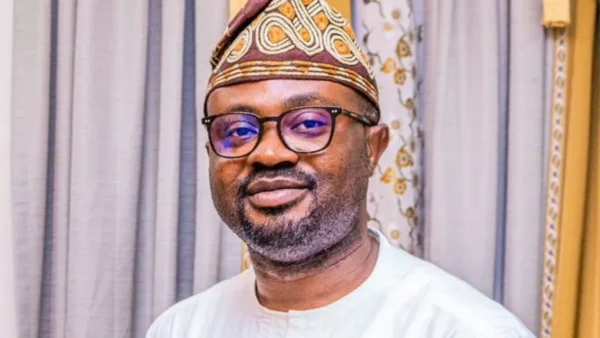
The Minister of Interior, Olubunmi Tunji-Ojo was also enmeshed in NYSC certificate controversy involving alleged forgery and discrepancies in his National Youth Service Corps (NYSC) certificate, which he submitted for his screening to the Senate.
According to his documents, Tunji-Ojo participated in the NYSC scheme at the age of 37, while the maximum age limit is 30.
But he quickly dismissed the lawmaker’s concerns, explaining that eligible individuals for NYSC could participate anytime after their date of graduation provided they graduate before the age of 30. This, he said, was his case.
He also claimed to have participated in the scheme between November 2019 and November 2020.
His claim raised further questions given that he was a sitting member of the House of Representatives during the same period, because he was elected into the House in 2019 and re-elected in 2023, representing Akoko North East/Akoko North-West Federal Constituency of Ondo State.
But in his explanation, Tunji-Ojo, however, failed to state why his NYSC certificate, a programme he claimed completed in 2020, carried February 2023 as the date of issuance.
The NYSC eventually cleared Mr Tunji-Ojo of any wrongdoing, stating that his certificate was genuine.
Months after the NYSC issue went out of limelight, Tunji-Ojo made the headlines over another controversy. While scrutinizing the N3 billion approved by the suspended minister of Humanitarian Affairs, Betta Edu, for the National Social Register contract, it was established that a whopping N438.1 million was paid to New Planet Project Limited, a company in which Tunji-Ojo was reported to be a director.
Amidst calls for President’s intervention to probe the allegations against him, the minister clarified on Channels Television that he had resigned his directorship in 2019 upon being elected as a member of the House of Representatives.
UJU KENNEDY OHANENYE
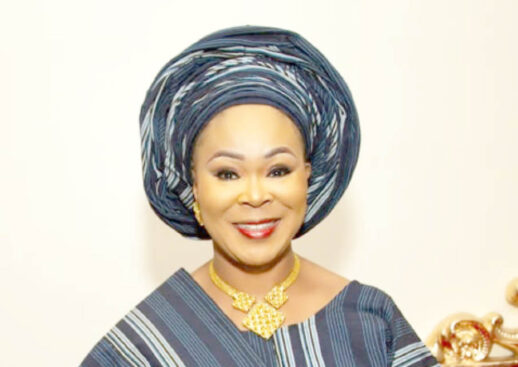
The minister of women affairs, Uju Kennedy-Ohanenye, has also been involved in several controversies since she assumed office in August 2023. In September 2023, she interfered in a sexual harassment case at the University of Calabar where she threatened to jail the victim if she lied to her.
There was an ongoing investigation into the case by the university, and commentators thought she should have let it run its course. She was widely criticised for taking that “hasty” position which drew widespread condemnation. She later apologized for her comments after facing backlash from the public and women rights groups.
In the same month, she suggested that children should be employed in producing everyday items like toothpicks, matchboxes, cotton buds, and sanitary pads to expedite urban development. She was consequently accused of endorsing child labour and violating the rights of children which she denied, saying she only meant to empower schoolgirls with vocational training.
Also in October 2023, she announced that she would sue the United Nations for not including Nigeria in the list of countries that had achieved gender equality. She claimed that Nigeria had made significant progress in empowering women and girls and deserved recognition from the global body, for which she was criticized for being “unrealistic” and “ignorant” of the challenges that Nigerian women were facing.
AJURI NGELALE
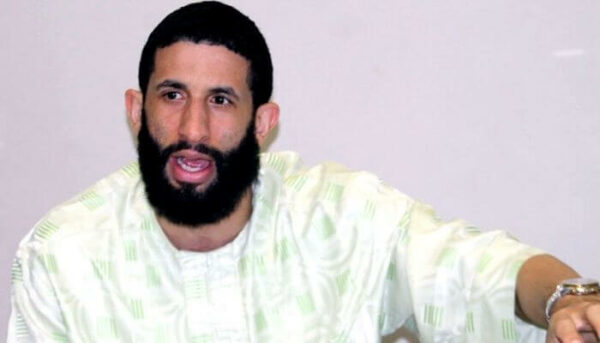
After the diplomatic meeting between President Bola Tinubu and UAE President Mohamed bin Zayed Al Nahyan in Abu Dhabi on September 11, 2023, the presidential spokesperson said the meeting had resulted in the UAE lifting the visa ban on Nigerians that was imposed in October 2022 over various disputes, including Nigeria’s inability to repatriate billions of dollars in trapped funds.
Ngelale also said Etihad Airlines and Emirates Airlines had resumed their flight operations to and from Nigeria without any payment by the Nigerian government, and that the two countries had established a framework for investments worth billions of dollars across multiple sectors, including defense and agriculture, by the investment arms of the UAE government.
However, a UAE official later contradicted the claim that it had lifted the visa ban imposed on Nigerian travellers.
Many critics in Nigeria also challenged Ngelale’s claims and accused him of exaggerating the achievements of the meeting.
For example, Atiku Abubakar’s campaign spokesman, Segun Sowunmi, said that the UAE did not reverse the visa ban on Nigerians, but only granted a temporary waiver for Tinubu’s delegation.
Sowunmi also questioned the credibility and feasibility of the investment deals, saying that they were not backed by any concrete evidence or documents, which Ngelale has not provided till date.
Again, on September 30, 2023, Ngelale once claimed that Tinubu was the first African leader to ring the closing bell at NASDAQ, the American stock exchange.
However, the claim was later found out to be false, as former President Kikwete of Tanzania had rung the bell on September 21, 2011.
Ngelale later apologized for the error and said he was misled by a third-party event organizer.
The false claim was widely circulated in the social media, and attracted criticism from some quarters.
HALIMA SHEHU
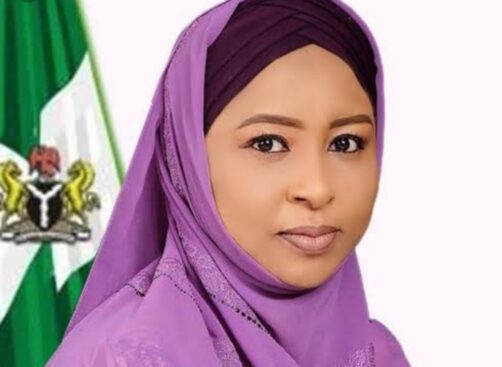
Halima Shehu, the former National Coordinator of the National Social Investment Programme Agency (NSIPA), was suspended by President Bola Tinubu on January 2.
The suspension was reportedly based on allegations of financial misappropriation and money laundering involving N37.1 billion within the Ministry of Humanitarian Affairs, Disaster Management, and Social Development.
She was also arrested and interrogated by the EFCC on the same day.
The EFCC says it has recovered about N39.8 billion out of N44.8billion allegedly embezzled from the government account under her watch.
This came as the EFCC is currently investigating three second generation banks for their complicity in the illegal transfers of the funds meant for poverty alleviation and other intervention schemes of the current government.
Shehu had allegedly signed off N44billion from government account in five days between 27th and 31st December 2023.
Sh had previously served as the National Coordinator of the Conditional Cash Transfer Programme under the former Minister Sadiya Umar-Farouk, who was also summoned by the EFCC over the same case.
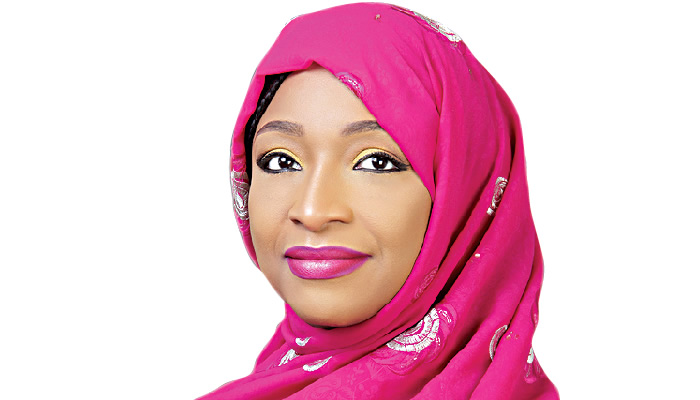
 Join Daily Trust WhatsApp Community For Quick Access To News and Happenings Around You.
Join Daily Trust WhatsApp Community For Quick Access To News and Happenings Around You.


